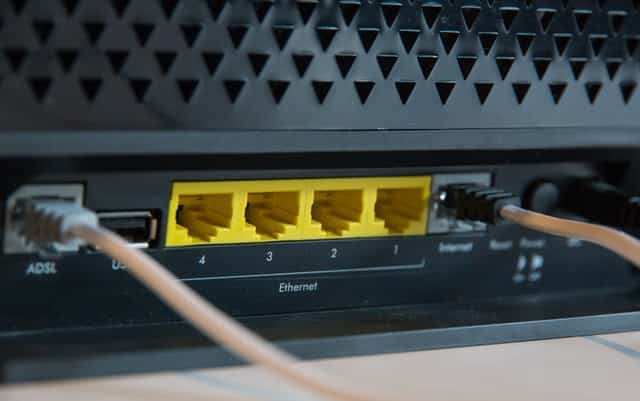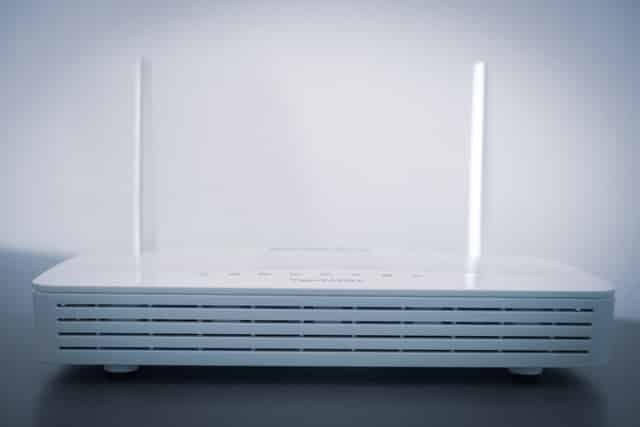When you purchase through links on our site, we may earn an affiliate commission. Here’s how it works.
How Many Devices Can Connect to a Wi-fi Router? – Overview
As technology advances, we need the internet in the many spheres of life we are active in. We require the internet to communicate and connect with others, to work, learn, and even play.
Every day, more and more devices and things get access to the internet thanks to IoT technology. So, how many devices can connect to a Wi-Fi router?
In addition to your laptop, smartphone, and TV, your lights, blinds, taps, sprinklers, fridges, and other home appliances must be online for the best service.
Thus, we need a stable internet connection at home, school, or work. For this, we will need a Wi-Fi router. It ensures that all your devices are easily connected to the internet.
How Many Devices Can a Wifi Router Handle
While some high-end Wi-Fi routers can theoretically support up to 250 devices, the practical limit for maintaining optimal performance is much lower, often around 50 devices for consumer-grade routers.
This means that, at home, all your devices can use a single router to stay online. Making it easier to access and control all your devices as they have a single source of internet.
However, it’s recommended not to connect more than 25 devices to a single router.
On the other hand, offices and other types of workplaces may need more than one router. This will depend on the number of devices they have and their internet needs. It will also depend on the size of the office.
Small offices with fewer devices only need a single router. Larger working areas, for example, warehouses, will need more than one router to distribute stable internet to the devices inside.
Limitations of Having A Large Number of Devices Connecting To A Router
Even though a Wi-Fi router can connect up to 250 devices to the internet, experts advise against it.
Why?
Some Devices Will Not Meet Their Internet Requirements
Wi-Fi routers do not necessarily divide bandwidth equally among connected devices; bandwidth allocation can be influenced by the router’s Quality of Service (QoS) settings, device demand, and network conditions.
Thus, the more devices connected to a router, the less internet bandwidth they have. This means you will have a lot of downtime on your internet use with different devices that may need more than they get.
Choosing a WiFi router that can distribute the maximum bandwidth to multiple devices evenly is important.
At home, gaming devices need more bandwidth than your smartphone. If your gaming devices are allocated less bandwidth than they require, you won’t enjoy playing your favorite game.
You can solve this by removing a few devices connected to your Wi-Fi router.
In an office setting with many devices connected to one router, many people may not access their emails and other important resources for work.
Internet Speed
Another reason you shouldn’t have many devices connected to the internet through a single Wi-Fi router is internet speed. The more devices on the router, the slower the internet speed connection.
This means that if you are watching a video online, you will spend most of your time waiting for it to buffer and fully load for you to watch.
Some downloads may also never be completed. You will have to use borrowed internet in different locations to download.
Router Overload
Many devices connected to one Wi-Fi router will lead to router overload. The router then had to overexert itself to satisfy the internet needs of all the devices connected to it.
This will result in the router overheating. This will cause the router to slow down, leading to slow internet speeds.
To stop the overheating, you may have to switch off the router. This will cause you to go without the internet for some time. This causes a slowdown at work and loss of control of your devices at home.
Enhance The Performance of Your Wi-Fi Router
Introduce Another Router
This helps to take away the pressure on the Wi-Fi router. With an extra router, fewer devices will connect to the internet.
This will help increase the bandwidth of each device on the router and the internet speeds.
Buy a More Powerful Router
Buy a router with high RAM provisions and higher processing power to download, stream easily, and play games.
Enhance Your Bandwidth
If you have many devices that need internet, you can always enhance your bandwidth supply with your ISP. The more bandwidth you have, the more stable your internet connection is.
It also eases work on your router, providing more internet to devices that need it.
Conclusion
While you can technically connect many devices to a Wi-Fi router, exceeding the router’s capacity for handling simultaneous connections can significantly degrade network performance and reliability. This will likely lead to many challenges in the quality of the connection to your devices.
You can use multiple routers to enhance the stability and internet speeds of devices connecting to your Wi-Fi router.
See Also


